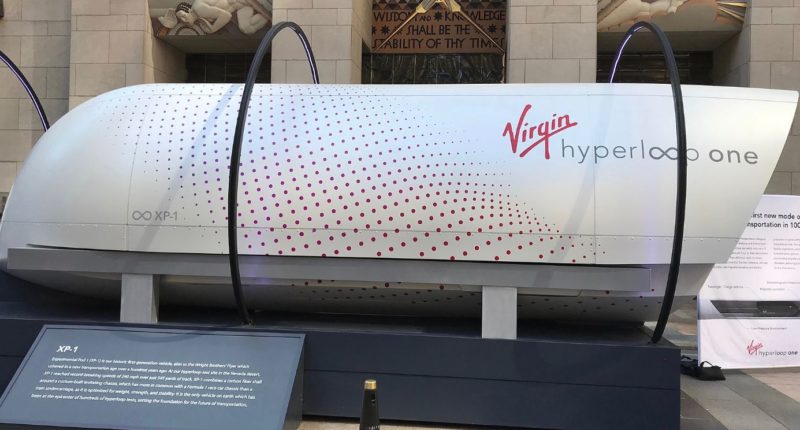Changing political winds, changing governments are often one of the biggest negatives for businessmen and industrialists. And specially in India, where it is often seen, that projects approved by preceding governments are either put on hold or scrapped altogether by new governments succeeding it. Something along those lines seems almost definite to happen with Virgin Hyperloop One’s proposed hyperloop track in India’s financial capital, Mumbai.
The Indian state of Maharashtra, for which Mumbai serves as the capital city, recently underwent state elections. The bitterly fought, long-drawn elections saw the preceding BJP-led government lose power in the state to an opposition supported by its own previous ally. The new government is scrutinizing all approved projects of previous governments, and one such project currently under scanner is the proposed Mumbai-Pune hyperloop track.
If the statement from the current deputy chief minister Ajit Pawar is anything to go by, the government is not seriously considering Hyperloop for Mumbai, just yet. When asked about the project, Pawar, who also holds the finance portfolio, said it has not been implemented anywhere in the world yet.
“Let it happen somewhere else. Let it become successful for at least a 10 km distance somewhere abroad,” he said. Further questioned whether he or his government will scrap the project, he said the customary politician’s line, “I did not say so.”
“We do not have the capacity to experiment with Hyperloop. We will concentrate on other modes of transport and in the meantime, if that technology develops more with successful trials abroad, we can think about it,” he added.
Virgin Hyperloop One, one among a few other companies who had taken the lead on developing this hyperfast transportation concept, had signed an “intent agreement” with the erstwhile government to build and operate a commercial track between Mumbai and Pune. The promise was, to reduce the travel time between the two mega cities to 20 minutes from the three hours at present.
Hyperloop as a concept, was first talked about everyone’s favorite billionaire inventor, Elon Musk, back in 2012. He had open-sourced the entire concept, asking corporates/startups to come forward and freely build commercial applications around it.
The Tech Portal is published by Blue Box Media Private Limited. Our investors have no influence over our reporting. Read our full Ownership and Funding Disclosure →






